Khashoggi fiancee: 'Saudi Arabia can get away with whatever it wants'
Hatice Cengiz tells Guardian world has failed to punish kingdom over journalist’s murder in Turkey
Tue 4 Feb 2020
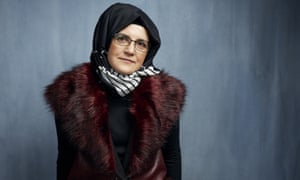
Hatice Cengiz said if anything now happened to her,
the world would be responsible.
Photograph: Taylor Jewell/Invision/AP
The fiancee of Jamal Khashoggi has said the world has failed to hold Saudi Arabia to account over the journalist’s murder and the kingdom is being “encouraged to do whatever it wants”.
Hatice Cengiz, a Turkish scholar and activist, said the lack of meaningful global sanctions against Saudi Arabia more than a year after Khashoggi’s brutal killing inside the Saudi consulate in Istanbul, had sent a message that the kingdom “can do what it wants, and then get away with it”.
“Because these people were not punished for what they have done, and because the world has chosen to just move on, they can still do what they want,” she said.
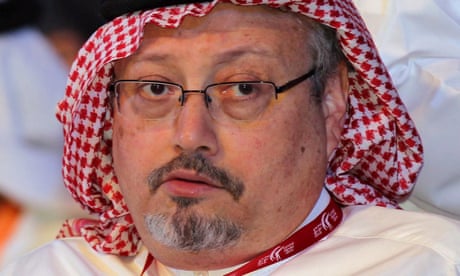
Jamal Khashoggi murder: timeline of key events
Cengiz spoke to the Guardian in Washington, where she is to attend Tuesday’s State of the Union address as a guest of the Democratic congressman Gerry Connolly, who has called for a halt in arms sales to Saudi Arabia and the possible closure of Saudi diplomatic facilities in the US.
In the wide-ranging interview, the 37-year-old spoke of her life since 2 October 2018, when Khashoggi, a Washington Post journalist, who had entered the Saudi consulate to retrieve documents he needed for their marriage, failed to emerge, leaving her waiting outside.
The fiancee of Jamal Khashoggi has said the world has failed to hold Saudi Arabia to account over the journalist’s murder and the kingdom is being “encouraged to do whatever it wants”.
Hatice Cengiz, a Turkish scholar and activist, said the lack of meaningful global sanctions against Saudi Arabia more than a year after Khashoggi’s brutal killing inside the Saudi consulate in Istanbul, had sent a message that the kingdom “can do what it wants, and then get away with it”.
“Because these people were not punished for what they have done, and because the world has chosen to just move on, they can still do what they want,” she said.

Jamal Khashoggi murder: timeline of key events
Cengiz spoke to the Guardian in Washington, where she is to attend Tuesday’s State of the Union address as a guest of the Democratic congressman Gerry Connolly, who has called for a halt in arms sales to Saudi Arabia and the possible closure of Saudi diplomatic facilities in the US.
In the wide-ranging interview, the 37-year-old spoke of her life since 2 October 2018, when Khashoggi, a Washington Post journalist, who had entered the Saudi consulate to retrieve documents he needed for their marriage, failed to emerge, leaving her waiting outside.
Photograph: Anadolu Agency/Getty Images
An investigation into the murder by a UN special rapporteur for extrajudicial killings, Agnès Callamard, later established that Khashoggi had been killed by a Saudi murder squad in what she described as a premeditated, state-sanctioned extrajudicial killing. US intelligence agencies have separately determined with a medium to high degree of certainty that the killing was ordered by the Saudi crown prince, Mohammed bin Salman.
Subsequent investigations and a report in the New York Times have alleged that “MBS” – as the crown prince is known – discussed the idea of using a “bullet” against Khashoggi as early as 2017. The Saudi government has said that the murder was a “rogue” act and had not been ordered by Prince Mohammed. The crown prince told 60 Minutes in an interview that he took “full responsibility [for the murder], especially since it was committed by individuals working for the Saudi government”.
An investigation into the murder by a UN special rapporteur for extrajudicial killings, Agnès Callamard, later established that Khashoggi had been killed by a Saudi murder squad in what she described as a premeditated, state-sanctioned extrajudicial killing. US intelligence agencies have separately determined with a medium to high degree of certainty that the killing was ordered by the Saudi crown prince, Mohammed bin Salman.
Subsequent investigations and a report in the New York Times have alleged that “MBS” – as the crown prince is known – discussed the idea of using a “bullet” against Khashoggi as early as 2017. The Saudi government has said that the murder was a “rogue” act and had not been ordered by Prince Mohammed. The crown prince told 60 Minutes in an interview that he took “full responsibility [for the murder], especially since it was committed by individuals working for the Saudi government”.
‘If he said he is responsible, and he is, he
needs to answer our questions. It’s as simple
as it gets.’ Photograph: Reuters
Since the murder, Cengiz has described her shock and overwhelming grief, and has described how she felt “detached from life for a long time”. But today Cengiz seems anything but detached.
Even as she describes the feeling of being “terrified” for her safety, her words are lit by a fierce demand for justice, and anger about what she describes as the world’s failure to hold Saudi Arabia accountable for the murder of the man she loved.
“They were encouraged to pursue their agenda even further,” she said. “If anything happens to me or to anyone now, how would they feel? The world would be responsible, double responsibility.”
Cengiz rarely holds back in her rebuke of the west – from the UN, to the US and the UK – and its response to the murder. While the world has witnessed Cengiz as a grieving partner, Callamard said Cengiz also has a “commanding personality”. When they first met, Cengiz spent 20 minutes interrogating the French investigator about her background and her intentions.
Agnès Callamard.
 Photograph: Fabrice Coffrini/AFP/Getty Images
Photograph: Fabrice Coffrini/AFP/Getty Images“There were searching questions and I felt I needed to pass this test if I was planning to interview her. We had a long and fruitful meeting afterwards, an important one for my investigation,” Callamard said. “There is far, far more to Hatice Cengiz than a victim or than the fiancee of Jamal Khashoggi. She is intelligent; she is brave, she has [defied] and continues to defy norms.”
The Guardian reported last week that US authorities urged British counterparts to keep a close eye on Cengiz in London last summer, because of their belief that Saudi Arabia had the “ambition and intention” to monitor Cengiz in the UK.
Cengiz said she was never alerted to the threat but that her fears for her safety have been a constant preoccupation. “Isn’t the fact that I was followed an attack on my private life? Because these things prevent me from being a normal human being.”
Cengiz described her connection to Khashoggi as an emotional one, and said the journalist did not share details of his work with her. But she recalled that he was mindful of the social media campaign against him on Twitter, and the retaliation against his critiques of the Saudi crown prince published in the Washington Post.
She recalled being surprised after Khashoggi said the Saudi trolls who were attacking him online made him feel “down”. “He said they can really mess with your psychology and your feelings,” she said, and that he tried not to pay too much attention to it.
The couple did not talk about whether Khashoggi feared being surveilled or having his mobile phone monitored or hacked. But Cengiz recalled that he did communicate with senior Saudi officials – princes and other authorities – over WhatsApp.
Omar Abdulaziz, a dissident and close associate of Khashoggi’s in Canada, has alleged in an Israeli lawsuit that technology owned by the Israeli firm NSO Group was used to hack into his phone on behalf of Saudi Arabia. It occurred at a time when he and Khashoggi were trading “hundreds” of messages on WhatsApp. NSO Group has denied the allegations and has emphatically stated that its technology was never used to personally target Khashoggi.
“There is obviously an international need to prevent people from using these [spyware] programmes,” Cengiz said. “We can see how spyware technology was apparently used to do something wrong by the government, something harmful. And is this not an international crime?”
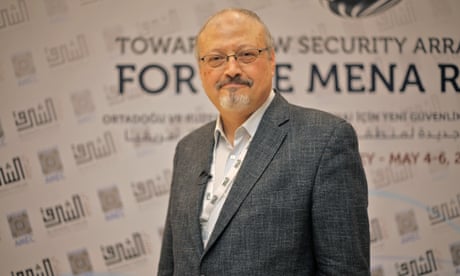
Jamal Khashoggi: murder in the consulate
In December, prosecutors in Saudi Arabia announced that five men were sentenced to death, and another three would face time in prison, for their roles in Khashoggi’s murder. The secret trial was roundly criticised by human rights activists as a sham. The case “exonerated” three senior men of wrongdoing, including Saud al-Qahtani, a close aide to the crown prince who was sanctioned by the US for his alleged role in the planning and execution of the murder.
Cengiz flatly rejects the outcome of the trial. “If MBS is really responsible, as he said in an interview, why didn’t he explain the reason for the five to be sentenced to death? Who are these people, and what happens to the others? Did they really think we would accept this without any explanation,” Cengiz said.
“On the one hand, MBS has said he accepts responsibility, on the other, he is running away from it,” she said. ”
 |
| PARADE IN DUSSELDORF GERMANY 2019 |
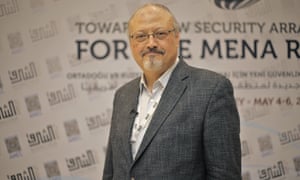
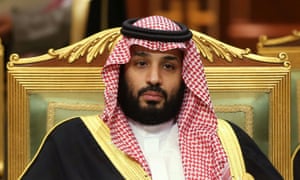
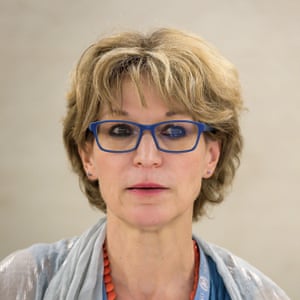
No comments:
Post a Comment